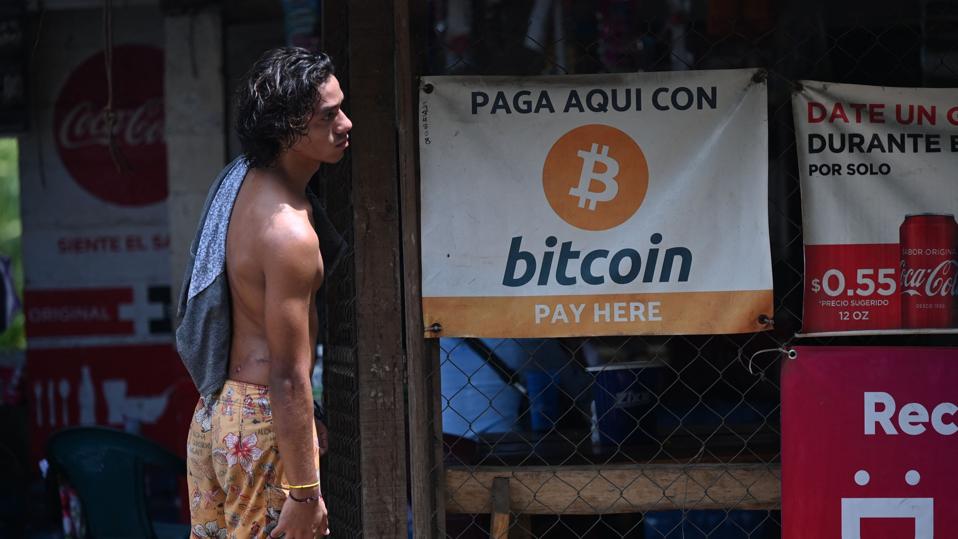With the SEC approving Bitcoin ETFs, crypto-twitter has been an excitable place so perhaps now is a good time to check back in on Bitcoin the real world where in 2021, El Salvador passed a law to make Bitcoin compulsory tender. As of the end of last year, approximately 109k El Salvadorans owned Bitcoin in a population of 6.4 million (less than 2%) and the country is ranked 55th on the global crypto adoption index. It seems that cryptocurrency adoption in the real world may be a struggle.
Laboratory Results
For those of us fascinated by the history and future of money, El Salvador is an interesting place, a laboratory to test crypto world views against reality. There are big plans. In addition to making Bitcoin compulsory, the President announced a plan to build a “Bitcoin City” in the east of the country, a city powered by thermal energy from a volcano. This will be funded in part by $1 billion in volcano bonds that are due to be issued shortly. Until such time as volcanos are supporting enough Bitcoin miners to wipe out the national debit, the country remains heavily dependent on remittances, which are fifth of its economy.
I read that the cost of a remittance from the US to El Salvador could be up to 30-50% of the value of the transfer so people should be flocking to alternatives but in a year when the country received more than $7 billion in remittances, only $126 million was in the form of cryptocurrency. That means that Bitcoin is less than 1.5% of remittance volumes, and that share is actually falling, not rising. Cryptocurrency remittances are down around a fifth year-on-year.
Within the country, usage seems similarly limited. The National Bureau of Economic Research (NBER), a non-profit, found that the national cryptocurrency wallet (known as “Chivo”) is barely used. It had all sorts of problems at launch and many Salvadorans gave it up after obtaining the free bitcoin incentive. Half the nation’s households downloaded the wallet when the law came in, but very few have bothered since. Among those early adopters, two-thirds have not made a transaction after spending that $30 incentive, although interestingly a fifth didn’t even spend the incentive (presumably speculating on the value).
In reality the small group of people who do use the app are banked, educated, young and male, not the 70% unbanked and poor citizens that were the target of the rollout. The New York Times branded Bitcoin “the regime’s currency” and said it is aimed at foreign crypto enthusiasts. This seems a reasonable comment given that the country is targeting crypto whales in a push to attract long-term residents to the country via the new “Freedom VISA” that gives residency to a maximum of 1,000 people per year who invest at least $1 million worth of cryptocurrency.
Alex Gladstein, the chief strategy officer for the Human Rights Foundation and an advocate for global Bitcoin adoption gave a precise description: “Chivo is a promise to pay Bitcoin or dollars. It is no different from a bank account”. The amount of Bitcoin sitting in these wallet fell by almost two-thirds in the first year of use and while bitcoin has become a topic of conversation, adoption remains low, with very few businesses who want to accept it and even fewer customers who want to pay with it. It is true that the international chains such as McDonalds and Starbucks accept it, it appears to be mostly tourists who use it.
(The epicentre of the Bitcoin revolution was Bitcoin Beach, but even there many businesses have given up on Bitcoin and reverted to cash.)
A survey by the Chamber of Commerce and Industry of El Salvador found that the overwhelming majority of business (nearly 90%) have never taken Bitcoin in payment despite its status as compulsory tender and only a fifth actually accept it at all. Another survey by the El Salvador-based El Instituto de Opinion Publica found that 7 in 10 Salvadorans do not think the Bitcoin Law has benefited their family economy. Another survey found that three-quarters of small and medium-size enterprises in El Salvador do not accept bitcoin payments. Of the companies that do find themselves in receipt of Bitcoin, almost all of them immediately convert it to dollars. This was corroborated by a detailed study reported in the journal Science, which found that most firms reporting sales in bitcoin converted them into USD: 71% converted sales into USD and then withdrew them as cash, 17% converted sales into USD and kept them in Chivo Wallet, and only 12% of firms stored their sales in bitcoin within Chivo Wallet.
(Rather interestingly, that detailed study also found that 11% of firms increased prices since bitcoin became compulsory tender. This is consistent with the hypothesis that firms might be transferring costs related to the cryptocurrency, such as volatility, on to their customers.)
Nothing Much
Frank Muci, a policy fellow at the London School of Economics, who has experience advising governments in Latin America, says bluntly that “Bitcoin doesn’t solve any of El Salvador’s important economic problems”, so other than waste government money — the experiment and all its associated costs have only set the government back around $375 million, which in an economy of $29 billion is not a big deal — it has had no real impact. With the NBER concluding that “the cryptocurrency is largely not an accepted medium of exchange in El Salvador” and Science reporting that despite the status and the incentives to promote Chivo, “digital payments were scarce and concentrated” I think we can conclude that Bitcoin remains a speculative instrument.

